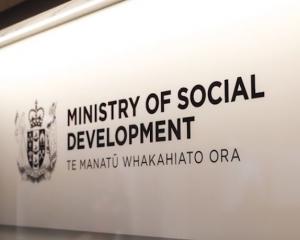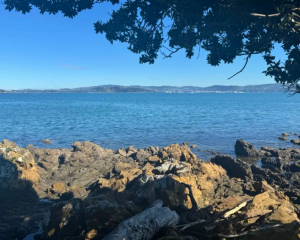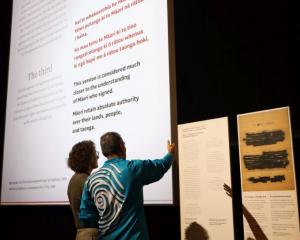
The man accused of murdering British backpacker Grace Millane will keep his name suppressed while a judge considers lifting the gag order.
The now 27-year-old Auckland man appeared in the High Court at Auckland this morning in an effort to convince Justice Simon Moore he should keep his name secret.
The man is charged with murdering Millane between December 1 and December 2 last year, court documents viewed by the The New Zealand Herald allege.
He pleaded not guilty at his last High Court appearance and a trial was set for November.
Today's name suppression hearing was held behind closed doors, preventing members of the public from attending.
Several members of the media, however, were present as was the office in charge of the case, Detective Inspector Scott Beard.
Justice Moore reserved his decision and suppressed the arguments made at the hearing by the defendant's lawyer Ian Brookie, the Crown Solicitor at Auckland Brian Dickey, the Herald and Stuff.
Millane, a university graduate, came to New Zealand in November last year as part of a year-long solo OE.
She arrived in Auckland just days before she was killed and was last seen alive on CCTV entering CityLife Hotel with the accused on December 1.
According to court documents, the defendant was living at the Queen St hotel.
Millane's body was later found in a section of bush just 10 metres off Scenic Drive in West Auckland's Waitakere Ranges on December 9. She would have turned 22 a week earlier.
A post-mortem examination was completed but police have not publicly released its details. Her body was returned to Essex in England for her funeral earlier this year.
When the defendant first appeared in the Auckland District Court after his arrest, Judge Evangelos Thomas declined granting name suppression.
However, the accused was able to keep his name out of local media after his lawyer indicated an appeal - automatically imposing a 20 working day suppression order under New Zealand law.
Late last year Justice Moore ruled that the appeal period, taking into consideration the closure of courts over Christmas and New Year, would end on January 29 if an appeal wasn't filed.
Today's court appearance was initially an appeal of Judge Thomas' decision. Brookie, however, abandoned his appeal and made a fresh application for name suppression on the basis of fair trial grounds.
Despite the suppression order, British media flouted New Zealand law and named the accused in its papers, online and on-air.
The Herald later reported the London newspapers' explanations for naming the accused, after objections by a close friend of the Millane family.
"Whist the Telegraph takes into consideration the laws of other countries when it comes to naming suspects/those charged with a crime and the names of victims of crimes we should stress that the law in New Zealand does not apply to our reporting," the paper replied.
Internet giant Google also breached the order when it named the accused in its "what's trending in New Zealand" mass email to New Zealand subscribers.
The email also said there had been more than 100,000 searches on its search engine of the man's name.
Social media platforms such as Twitter and Facebook were also publishing the man's name.
The Google breach led to a meeting with New Zealand's Justice Minister Andrew, Attorney-General David Parker, and executives from the Silicon Valley-based company.











